NC Pharmacy Board Defense: Pharmacist License Defense Attorney
Defending Pharmacists Before the NC Board of Pharmacy
Pharmacists in North Carolina practice under a strict regulatory system designed to protect patient safety and uphold professional standards. When a complaint is filed, the consequences can be serious — a disciplinary record may jeopardize your pharmacy license, DEA registration, employment opportunities, and professional reputation. This page provides an overview of how the North Carolina Board of Pharmacy (NCBOP) handles complaints and investigations. Because every case is unique, it’s important to consult an experienced pharmacist license defense attorney before responding to the Board.
Why Complaints Against Pharmacists Happen in NC
Complaints to the NC Board of Pharmacy typically originate from:
* Patients or clients who perceive errors (e.g. wrong drug, dosage, instructions).
* Employers or supervisors (e.g. suspected policy violations).
* Insurance companies, payers, or auditors flagging reimbursements.
* Other health professionals or regulatory agencies (e.g. cross-reporting).
* Internal or external audits revealing red flags (e.g. inventory variances).
Common categories include:
* Dispensing mistakes: wrong medication, formulation, route, or directions.
* Documentation lapses: incomplete or inconsistent patient records, missing signatures, failure to maintain three years of prescription records as required by NC law.
* Drug diversion or suspected misuse: suspicion of theft, loss, misappropriation, or illicit prescribing.
* Professional or ethical misconduct: boundary violations, misrepresentations, conflicts of interest.
* Noncompliance with statutory/regulatory obligations: failing to follow the NC Pharmacy Practice Act or Board rules.
* Criminal or felony allegations: convictions or pleas involving drug offenses or fraud.
What to Expect When You Receive a Complaint:
When the North Carolina Board of Pharmacy receives a complaint—whether from a patient, another agency, or an internal referral—the first step is a preliminary screening. Board staff review the complaint to determine whether the allegations, on their face, fall within the Board’s jurisdiction and merit further inquiry. Complaints that are clearly outside the Board’s authority, frivolous, or lack any factual foundation are generally dismissed early in the process. The Board’s focus is on regulating professional conduct within its statutory authority, not on addressing grievances beyond its scope.
If the complaint survives initial screening, the Board typically notifies the pharmacist or pharmacy technician involved and requests a written response. Having an experienced pharmacist license defense lawyer at this stage can ensure your response protects your license and professional reputation. The licensee is invited to address the allegations and may be asked to provide supporting documentation, such as pharmacy records, dispensing logs, communications, or internal policies. It is critical at this stage to respond carefully and precisely—providing complete but not excessive information—since anything submitted becomes part of the investigative record and could influence how the case proceeds.
If the Board determines that further action is warranted, it may open a formal investigation. A designated investigator will gather additional evidence, interview witnesses, and may conduct on-site inspections of the pharmacy’s operations, inventory controls, records, and security systems. In some cases—particularly those involving allegations of diversion or controlled substances—the State Bureau of Investigation (SBI) or other law enforcement agencies may become involved in a parallel or joint investigation. In rare and serious situations where the Board believes continued licensure poses an immediate threat to public safety, it may issue a summary suspension of the license pending further proceedings.
During the investigation phase, the Board may issue subpoenas for documents, testimony, or other evidence. Investigators frequently interview the pharmacist or pharmacy staff, review dispensing and inventory records, and assess compliance with applicable statutes and administrative rules. Licensees have certain procedural rights in contested matters, including the ability to request discovery of relevant Board records or internal materials.
Once the investigation is complete, the Board often offers an opportunity for informal resolution before initiating a formal administrative hearing. This may take the form of a pre-hearing or informal conference, where the licensee and their attorney can present mitigating evidence, clarify facts, or negotiate settlement terms. The Board’s staff may propose a consent order—a legally binding agreement that resolves the case without a full hearing. Consent orders can include probationary terms, fines, continuing education requirements, monitoring, or practice restrictions. Some are classified as disciplinary actions and become part of the public record, while others are structured to avoid unnecessary collateral consequences. Competent legal counsel is essential in evaluating whether a proposed consent order is reasonable, negotiating modifications where appropriate, or deciding whether to proceed to a contested hearing.
Any consent order negotiated with Board staff must be ratified by the full Board at a scheduled meeting. If the Board declines to approve the proposed settlement, the matter typically proceeds to a formal administrative hearing under the North Carolina Administrative Procedure Act, where evidence and testimony are presented before a final disciplinary decision is issued.
Note: This description is in no way exhaustive. Every case is different and you’re encouraged to seek legal counsel.
Possible Sanctions & Collateral Consequences
If the Board finds a violation, possible disciplinary actions under NC law include:
Letter of Reprimand (public or private)
License Restriction or Probation (e.g. supervised practice, mandatory audits)
Suspension (temporary loss of license for a defined period)
Revocation (permanent termination of licensure)
Refusal to renew or grant a license in the first place
Mandatory remedial education or training
Fines or monetary penalties
A pharmacist license defense attorney may be able to mitigate these possible sanctions.
Statutory & Regulatory Authority of the NC Board of Pharmacy
Understanding why the Board can act is crucial. Key legal foundations include:
North Carolina General Statutes, Chapter 90, Article 4A (the Pharmacy Practice Act) defines the Board’s powers, disciplinary grounds, record keeping obligations, and licensee duties.
Under G.S. 90-85.38, the Board may discipline a pharmacist for a wide variety of violations, including false statements, drug law violations, negligence, and failure to comply with rules.
The Board also has rule making authority through 21 NCAC 46, which lays out procedural, operational, and ethical standards.
For pharmacy technicians, G.S. 90-85.15A gives the Board authority to suspend or revoke their registrations for similar misconduct.
The Board publishes final disciplinary actions on its website under its Disciplinary Actions portal.
These statutes provide the legal “rails” within which investigations, hearings, sanctions, and appeals must operate.
Take the Next Step
Your license represents years of education, training, and experience. A single complaint or misunderstanding should not jeopardize your career.
If you are under investigation by the North Carolina Pharmacy Board or have been notified of a complaint, contact our office today. We provide free and confidential consultations. Office number: 919-616-3317.
A knowledgeable pharmacist license defense attorney can help minimize disciplinary action and advise on how to respond to potential sanctions.
Appeals
You may appeal the Board’s final decision to the North Carolina Superior Court under Chapter 150B of the North Carolina Administrative Procedure Act (APA). Judicial review in these cases is limited—the court will generally defer to the Board’s factual findings if they are supported by competent evidence. However, the court may overturn or remand the decision if it finds that the Board exceeded its authority, acted arbitrarily, or violated procedural due process. Because appeal deadlines are strict and jurisdictional, it is essential to consult with experienced legal counsel promptly if you believe you have an appealable issue.
Whether responding to an initial complaint or appealing a Board decision, a dedicated pharmacist license defense attorney can guide you through every step to protect your license and career.




